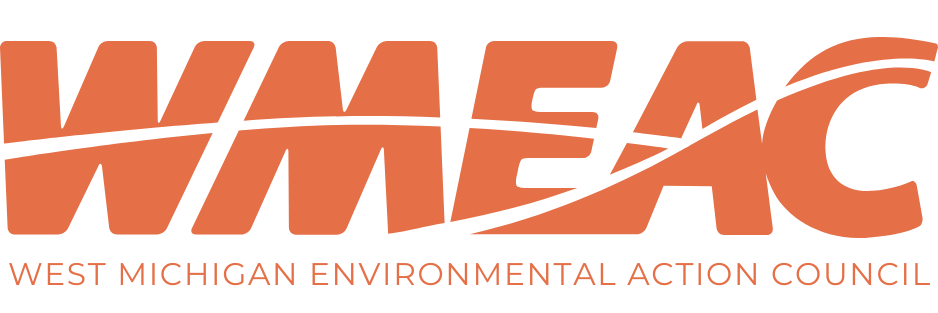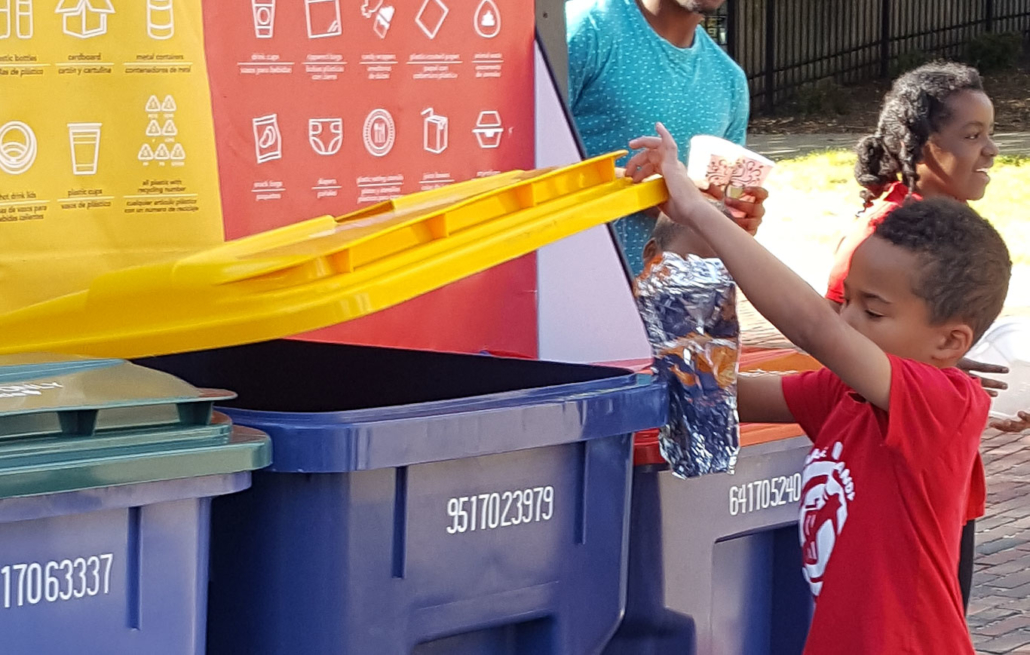Welcome to Lakeshore Eco-Action, a new communication vehicle for WMEAC’s expanded focus in the Muskegon area and along the lakeshore.
The focus will be on action, so this new blog is aptly named. It’s for folks who want to get active to protect the superb natural resources that provide such a unique and wonderful special quality of life for us all along the lakeshore. We will be encouraging and supporting opportunities for individuals, organizations, businesses, and government to take the lead on a clean and safe environment, and especially climate action and clean energy to help make our lives even better!
Our first blog post is on a topic of considerable interest in the Muskegon area – recycling. WMEAC is currently working with a group of local elected officials, educators, community groups and businesses to improve recycling in Muskegon County. One of the challenges, according to group members, is the lack of educational messaging on recycling and, in particular, an answer to the frequent question from residents about why recycling is not free.
Mickkayla Erbach, our Muskegon Lakeshore Recycling and Climate Action Intern this past summer, tackled this subject for us. She is a philomath (lover of learning) who is passionate about human rights and the environment. She lives in Muskegon County, is a member of the White Lake Area Climate Action Council and is currently pursuing a marketing degree from Baker College, where she is a member of the Student Life Leadership Council.
Mickkayla explains why we pay for recycling and why it is getting more costly, and she provides actions people can take to reduce those costs. Do stay tuned to get involved and join us as we work toward positive environmental solutions for our home, in the Muskegon area and along the lakeshore.
By: Mickkayla Erbach
You know that warm feeling you get when you recycle? The feeling that even in the current state of the world, you are still doing something right. I like that feeling and I like to recycle. Recycling makes me feel as if I am doing my part and helping lessen the negative effects of our consumerist society on the planet. Can you relate? On a budget, I noticed recently that my recycling bill is up. Are you also wondering why your recycling bill has increased? Or why do we even have to pay for recycling? Let’s examine why this is and what we might be able to do to reduce the need to recycle.
Why are we paying for recycling?
Recycling costs because it costs to turn one material into another, including the transportation involved, machine processing, salaries of those transporting and sorting the goods, and other business costs – in short, handling the materials costs money. The major cause of rising recycling fees is one that isn’t talked about enough: the lack of buyers in the market for recycled items. In 2018, China announced it would no longer import U.S. recycling and waste, as it had for years (Forbes, 2021). This disruption in the recycling chain made the U.S. responsible for creating a recycling process within its borders. Now U.S. companies are having trouble finding buyers of the recycled goods, making them less likely to operate their recycling facilities. With fewer recyclers and a small market for recycled goods, prices for recycling continue to rise, according to a study by NPR (NPR, 2019).
Recycling is good for the economy!
Recycling Specialist Jeff Krcmarik with the Michigan Department of Environment, Great Lakes, and Energy (EGLE) wants to remind us that recycling is greener than you think. According to Krcmarik, “Raising the recycling rate from the current 18% to 30% would create up to 13,000 new jobs and an additional $22 million in state tax revenue according to Public Sector Consultants and the market value of all recyclable materials going to the landfills have an estimated value of $435 million dollars. And recycling creates more jobs than landfilling and strong recycling programs can reduce solid waste collection, transportation, and disposal costs.”
How we can reduce fees and live a greener life?
Recycling is beneficial. It uses less energy than creating new products, lowers prices of consumer goods since using recycled inputs is cheaper than manufacturing with new materials, and reduces the amount of landfill space used (GLE, 2021) . Although there are numerous pros of recycling, there are still more eco-friendly ways to operate in our society: reducing and reusing. Remember Reduce, Reuse, Recycle? It’s a hierarchy of what to do first, second and last. Recycling helps the planet but reducing and reusing does so to a greater extent. Before recycling something, ask yourself: can I or someone I know use this? If so, donate it. If you’re in need of an item, instead of buying it or buying a recycled version of it, try finding it at a local secondhand store or seeing if any members of your community can provide it for you. Recycling is good for the planet, but processing the materials still releases greenhouse gases that contribute to climate change, requires use of resources, and comes with a fee. Because I know why recycling needs to be paid for, I am happy to pay for a better environment, but mostly, I hope we can work toward a new concept – a circular economy — where products are designed so there is little to no waste.
Sources


